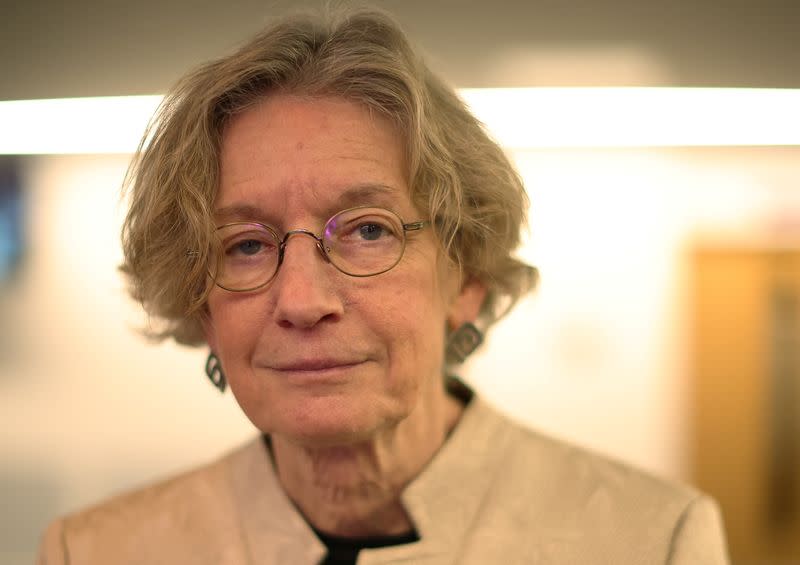BoE's Mann does not see risk of raising rates too high

By Andy Bruce
MANCHESTER, England (Reuters) -The Bank of England is not at the point in its interest rate-rising cycle where it needs to worry about the risk of over-tightening, Monetary Policy Committee member Catherine Mann said on Thursday.
"You have a lot of different ways of looking at it. My reading is we're not there yet," Mann said in a question-and-answer session after giving a lecture at Alliance Manchester Business School.
The BoE raised its main interest rate to 3.5% in December from 3%; Mann voted for a bigger increase to 3.75%.
Mann said she assessed the risk of over-tightening based on a range of metrics, including mortgage rates, equity valuations and currency strength, which fed into broader gauges of financial conditions, as well as financial market expectations.
Financial markets see a 60% chance that the BoE will raise interest rates to 4% next month, and a 40% chance of a smaller rate rise to 3.75%. Rates are seen by markets as most likely to peak at 4.5% in the middle of the year, but with a high chance that the BoE could stop sooner at 4.25%.
British consumer price inflation fell to 10.7% in November from a 41-year high of 11.1% and is set to fall further as natural gas prices have stabilised.
However, Mann said she was concerned that past rises in energy prices and other cost pressures were now getting passed on through higher prices for other goods and services.
"That's what we're worrying about," she said. "That underlying inflation dynamic looks pretty robust right now. Our job is to bring that back to 2%."
(Reporting by Andy Bruce; writing by David Milliken;Editing by Leslie Adler)

 Yahoo Finance
Yahoo Finance 